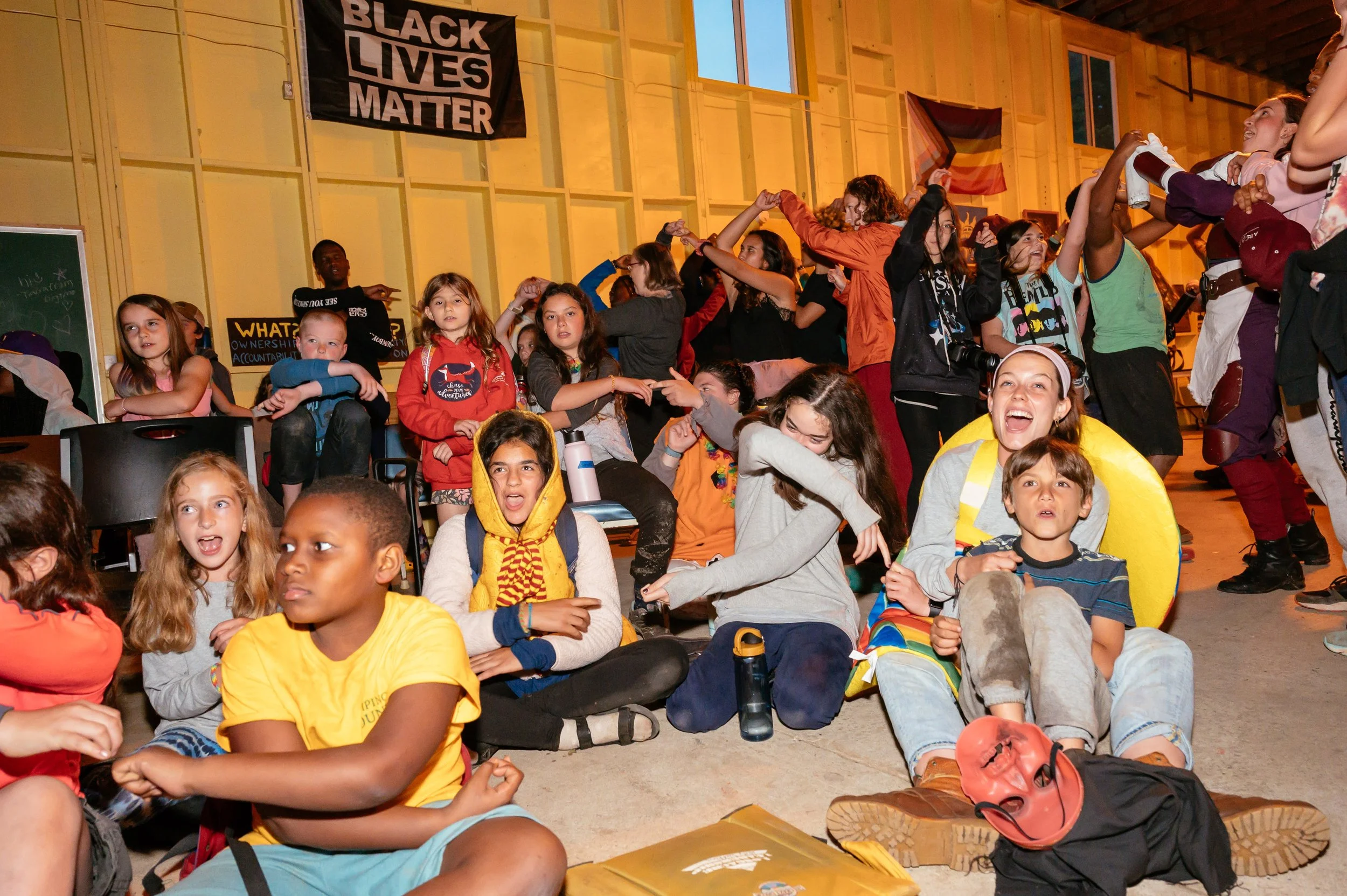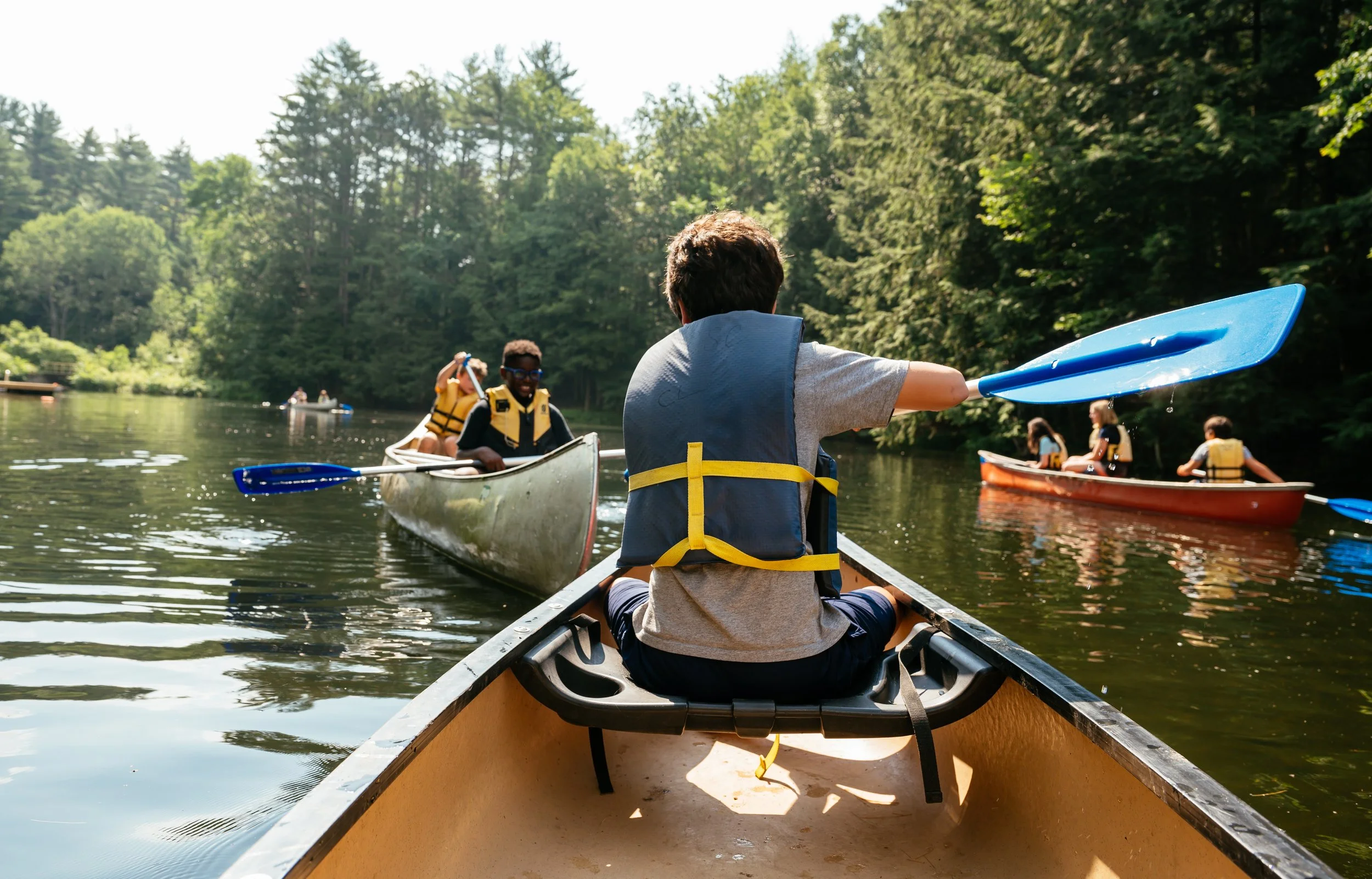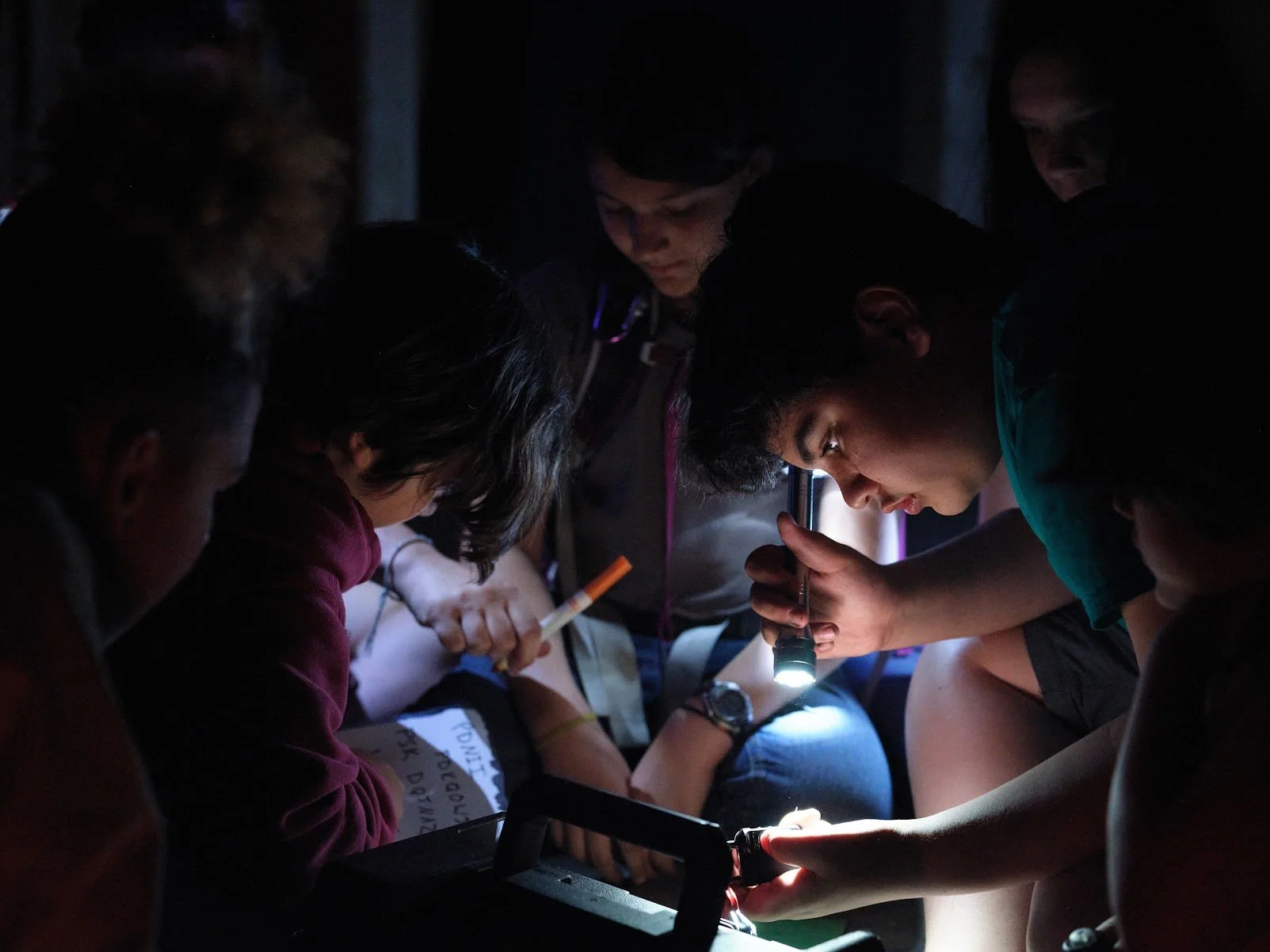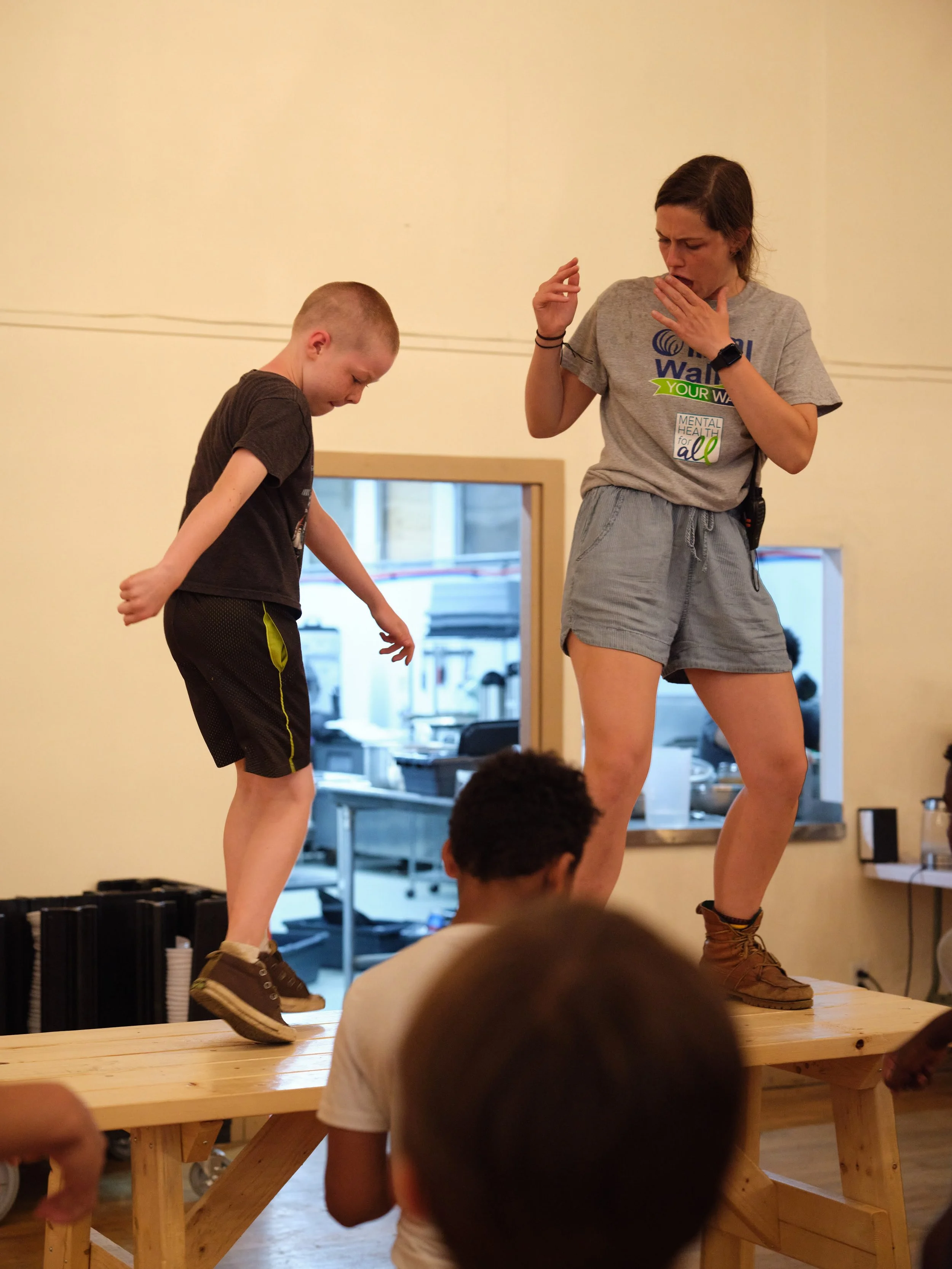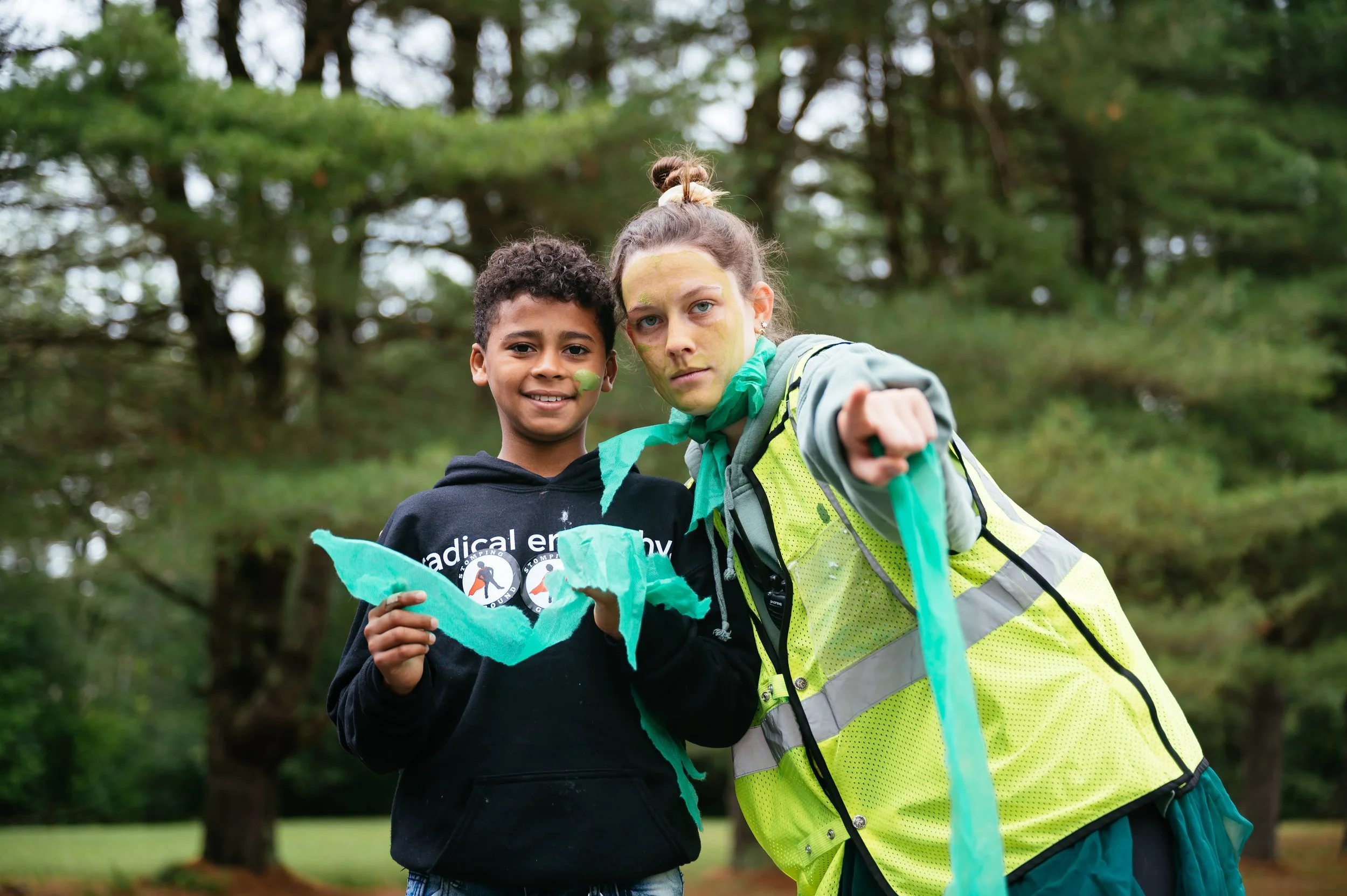A Transformational Circle: Restorative Practices in Real Time
Below is a journal entry I wrote over the summer. I had walked away from one of the most transformational and meaningful circles of my experience at Stomping Ground so far. I was a little teary-eyed and felt so grateful that I get to work in a community that values connection over division. This circle was IT! We did it. We lived restorative justice and saw its power in building understanding and radical empathy. This experience felt so validating after a year of running my mouth on Zoom convincing other camp directors to facilitate circles at camp, and after a year of being so isolated from others while divisive rhetoric dominated our news channels and social media.
So after said circle, Laura said, “Klee! I don’t care what you have going on. Go type all of your thoughts and memories about this circle in a google doc. It will matter later.” In the chaos and busy schedule of camp, this was a big deal. So I took Laura seriously and wrote out all that I could to try to translate the power of this circle. For the purpose of the blog, I’ve renamed both campers involved. Here it is:
It’s Sunday - day one of camp 2021 at a brand new facility and a brand new program as we navigate COVID at camp. It’s also 89 degrees. Kids are tired, sweaty, and remembering what it’s like to live in a community after over a year of staying home.
A couple of hours into being at camp there’s already conflict in cabin Blueberry 4. Two 11-year-old campers who have known each other since kindergarten can’t see eye to eye on ANYTHING. They’re insulting each other’s families, comparing whose hair conditioner is better than the other’s, calling each other names, and constantly poking each other’s buttons to get a reaction from one another.
We have our first conflict circle after the opening campfire on day one. We hear out both sides of the conflict and set the following agreements:
No name-calling
No cursing
No insulting each other’s families
A few hours later we discover it doesn’t work. Neither party has followed the agreements we set. We come back to the circle and ask the campers what has been difficult about following the agreements. Both shrug, seem discouraged, and disinterested in continuing to circle up. We take a breather and talk about coming back to the circle at another time when we’re feeling more willing to share with one another.
Day 2 of camp arrives. Due to COVID, campers are still participating in camp activities with only the kids in their cabin. Omar and Tony’s cabin goes to kickball first. During kickball, Tony is telling another cabin mate that Omar is so annoying. Omar gets so upset to hear someone talking about him behind his back that things escalate and he throws a water bottle at Tony.
Tony breaks into tears, Omar is heated, and both campers are separated. Tony goes to the Getaway, our health center, and Omar calms down with 3 staff who have been supporting him throughout the conflict. Omar is asked how he feels after throwing the water bottle, and shares that he threw it at Tony “to give him a taste of his own medicine” hoping that Tony “feels the pain that I feel when he’s rude to me.” There’s space for Omar to make sense of what happened and process how he’s feeling.
During this time the staff figures out that Omar is in fact interested in rebuilding his friendship with Tony, and that he misses the time when they were younger and easily got along. Omar is asked to reflect on the qualities of Tony that make him a good friend. Omar also shares what makes him a good friend to others. We then talk to Omar about fixed mindset vs. growth mindset. Laura shares that as a kid she had a fixed mindset about math. We explain to Omar that we think he has a fixed mindset about Tony and that means that before even trying to understand a situation involving Tony, his body prepares for anger and his armor is already up, assuming the worst in him. Omar shares some other times that he’s had a fixed mindset about other things. This becomes common language for Laura and me to use with Omar and helps us build trust and understanding with him.
Afterward, Laura chats with Tony. She tells him she’s sorry he got hit with a water bottle, and that it is not cool for Tony to say mean things about Omar. She asks if Tony has ever been going through a hard time and Tony opens up, sharing a point of his life that was hard for him when he was in 4th grade.
Laura narrates for Tony that Omar too is going through a tough time. And while it doesn’t excuse our actions, sometimes we do mean things when we’re going through a hard time. Tony opens up to Laura and lets her know that he tends to be the “problem solver” in his friend group. Laura asks him to tell her more. She learns that Tony is a good listener to his friends when they’re going through a tough time with family or relationships, and she asks if Tony can check on Omar the way he checks on his other friends.
Tony isn’t sold on the idea at first, but after spending some more time chatting with Laura he says, “Actually Laura, I can try being a friend to Omar.” Laura tells him she thinks that would help Omar a ton, and we plan to circle up after lunch.
Lunchtime rolls around and it’s time to circle up again with myself, Omar, Tony, Laura, and Patrick, their counselor. Laura fills Patrick in on the events of the morning. Patrick says he’s not surprised, and he’s noticed that since day one they’ve been insulting each other and hard to be around. Patrick also shares that everything they’ve mentioned is reminiscent of conflicts and drama he went through with his friends as a kid.
Tony and Omar both still seem pretty uncomfortable and apprehensive, but after a few minutes of talking, they start to open up. Tony shares that he’s willing to be Omar’s friend again with some ground rules:
No inappropriate jokes
No insulting his family
Omar shares that he too is willing to try being Tony’s friend again. Omar asks for the following ground rules:
No throwing him under the bus or talking behind his back
No insulting his family
Patrick vulnerably shares how he too remembers arguing with friends, getting in fights at school even, and losing real friendships because of it. I’m so wrapped up in Patrick’s vulnerability and honesty that when I look over at Tony and Omar I realize I didn’t even notice how their body language had shifted. Their armor is gone. Instead of responding quickly to one another and placing blame on each other for their actions, they are quiet, listening, and sharing mutual looks at one another both knowing they both have something to gain from being vulnerable like Patrick was in this moment.
And so after Patrick shares, Tony and Omar share similar stories about fighting with friends at school. At this point, we have shifted from only talking about our conflict at camp, and instead of talking about greater issues of taking hard feelings out on other people.
Omar and Tony conclude that at camp, they want to have each other’s backs. This sets them up for success for the rest of their time at camp.
We end with an empathy exercise. Both Tony and Omar are asked to make eye contact with each other and I narrate some affirmations for them like:
“The person you are looking at has felt joy.”
“The person you are looking at has gone through a hard time and felt pain.”
“The person you are looking at has felt shame before. And has been afraid.”
“The person you are looking at has made really big mistakes, and been afraid that they can’t repair them.”
As I narrate these phrases during the exercise, Tony and Omar look into each other’s eyes, as well as Laura and Patrick to narrate the exercise.
After our exercise, both campers say they feel like they have a better understanding of one another and feel ready to go back to camp.
We then each perform for each other our own take on “the nasty whip,” one of the most popular and silly dances of summer 2021 at Stomping Ground.
Looking back -
After reading my journal that I wrote over the summer I am reminded by the power that circles can have, and that they only work when we’ve built real trust with others. It would have been easy to separate these two campers on day one when they first started arguing and settle for the fact that they were never going to get along. However, the trust built in our community and the buy-in we have from campers to talk through conflict when it comes up meant that these two campers had the opportunity to work through difficult emotions and be vulnerable with each other.
When we rob kids of the opportunity to reflect on their actions, and instead immediately send them away for things they’ve done, we rob them of the opportunity to see that their decisions and actions have real impact on others. This takes power away from kids. I saw the look on Omar’s face change and his body language shift when he saw the hurt he caused and fear he instilled in Tony when throwing a water bottle at him. Likewise, I heard Tony’s perspective change when Omar shared that he was struggling at camp after a year of not being with friends and how hurt he felt when Tony talked about him negatively behind his back.
The time and energy we give to our campers matters. I am confident that these two campers will remember this circle for a long time. And the next time they make a quick assumption about another person or get mad at their friend for talking behind their backs, they will be bold and ask for a conversation with those they’re upset with and know that there is power in taking accountability for our actions and showing up to talk about hard things.
Allison Klee
Camp Specialist
klee@campstompingground.org

